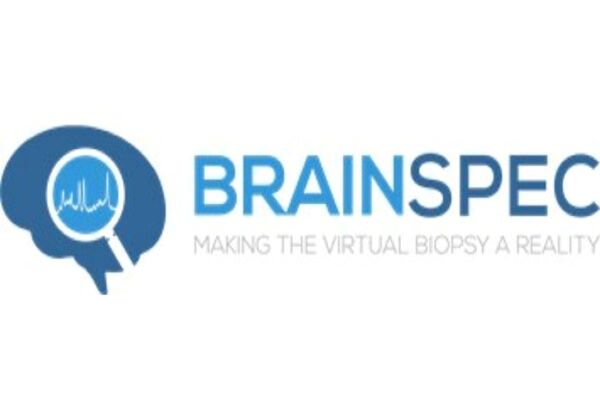First-ever brain chemistry database will allow clinicians to quickly infer brain biomarker data to support the diagnostic process in conditions such as Alzheimer's Disease

BrainSpec, the comprehensive software platform enabling virtual biopsies of the brain, has been awarded clearance by the FDA to begin using their Magnetic Resonance Spectroscopy (MRS) platform to provide non-invasive measurement of brain chemistry to support the diagnostic process in the most common brain-related illnesses, including Alzheimer's disease, multiple sclerosis, epilepsy, brain tumors, and more. This marks the first-time software using a reference database of brain chemistry has been included in an FDA clearance.
By using non-invasive imaging, BrainSpec Core measures concentrations of chemicals in the brain in order to create a virtual biopsy using standard MRI scanners. Unlike MRI, which provides anatomical images, MRS delves into the chemical composition of tissues, opening up new avenues for precise diagnosis and treatment.
Adding MRS to the diagnostic process has been shown to save as much as $98K per patient in healthcare costs compared to current standard of care alone over a 5-year time horizon.
"We are thrilled to be given this full clearance by the FDA. It signals a new era of software enhancements that will not only complement but also speed up the complicated and lengthy process of diagnosis. Our aim is not to replace the critical role of physicians but to augment their expertise with invaluable information previously unavailable. We believe that by equipping healthcare professionals with cutting-edge tools, we can empower them to make more informed and precise treatment decisions, ultimately leading to improved patient care," Alex Zimmerman, CEO & Co-Founder, BrainSpec, said.
"There are several key advantages of this AI solution that have important clinical relevance," said Raymond Y. Huang, MD, PhD, Division Chief, Neuroradiology, Brigham and Women's Hospital. "First, it provides quantitative neurometabolite measurements that can be used to aid in monitoring the changes in brain tumors that are undergoing therapy. The second strength is that it automates the delivery of the MR spectroscopy results, reducing turn-around time from days to minutes which is critical for the clinical care of patients. Finally, ability to measure 2-hydroxyglutarate and other brain metabolites provides a direct and non-invasive marker of low-grade gliomas that could lead to a more accurate classification of individual tumors benefitting decision making."
"The ability to measure relative 2-hydroxyglutarate levels leads to a more accurate classification of individual tumors benefitting treatment decision making which is in the best interest of patients," said David A. Reardon, M.D., Clinical Director, Center for Neuro-Oncology, Dana-Farber Cancer Institute. "There has been a high unmet medical need for reliable and quantitative neuroimaging methods for the management of brain tumor patients."
"It's similar to when television went from black and white to full color. We are able to see so much more in greater detail with the transition. Our hope is that this will make spectroscopy much more available to the public,” says David A. Reardon, M.D.
In June 2022, BrainSpec received FDA designation as a Breakthrough Device for estimating isocitrate dehydrogenase (IDH) status in glioma patients, for whom biopsies are inadvisable.

Subscribe To Our Newsletter & Stay Updated